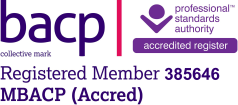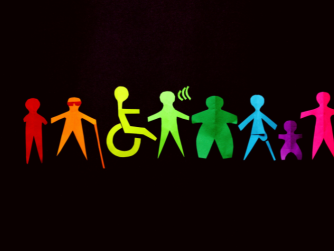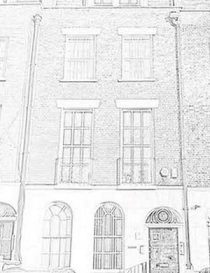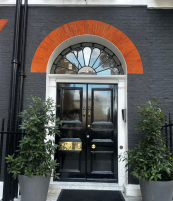London Counselling and Psychotherapy (LCaP)
Integrative Therapeutic Talking & Listening Therapy, through a Psychodynamic Lens
Accredited Counsellor and Psychotherapist with clinics in Angel N1, Islington EC1V, Holborn, Bond Street, Harley Street, Cavendish Square, Oxford Street, the West End, and Marylebone.
Face-to-face & online counselling sessions for adult individuals, couples and other relationships (family and non-traditional).


Welcome to my website
I am a qualified and accredited counsellor with clinics across Angel, Islington London, Holborn, Bond Street, Harley Street, Cavendish Square, Oxford Street, the West End, and Marylebone.
I am committed to providing counselling, psychotherapy, and talking therapy in a safe, confidential, and non-judgmental environment. I work with individuals and couples using an open-ended counsellor approach or for an agreed-upon period to enable you to enhance your life experience(s) and live them more fully.
I understand that seeking out therapy might be a difficult decision for some, but I firmly believe that when an individual makes that step, it is because they are ready for change and growth. Using my counsellor training and counsellor knowledge, I will work with you towards a better awareness of yourself and yourself in relation to those around you.
Nothing you say will shock me, and everything you say is always confidential.
Together, we will recognise and explore patterns in yourself and others, what your triggers are, and where those patterns may have originated. I do not believe in immediate fixes; rather, most issues are relational problems.
I work from clinics in Angel, Islington London, High Holborn, Holborn, Bond Street, Wimpole Street, Harley Street, Cavendish Square, Oxford Street, the West End, and Marylebone. Currently, I have availability in Islington, West End and Marylebone

It's about the relationship we have with a problem that causes us pain; how you react to a topic, person or life event that causes upset in your personal and/or professional life.
The Process for starting
The process is something like this:
- We have an initial 15-minute telephone call.
- You tell me a little bit about what is going on for you and why you have reached out for counselling and psychotherapy.
- I will tell you a bit about what I can offer you as an integrative therapist.
- If by the end of the telephone consultation we are both happy to go ahead, we move on to looking at both our diaries to agree on a weekly day/time slot for each week in person at Angel, Islington, Holborn, Bond Street, Wimpole Street, Oxford Street, the West End, and Marylebone. I also offer online counselling sessions or hybrid counselling sessions.
- I offer a once-weekly model, which can be short-term therapy or long-term therapy (open-ended).
- If you would prefer a full in-person assessment session in Angel, Islington London, Holborn, High Holborn, Bond Street, Wimpole Street, Harley Street, Cavendish Square, Oxford Street, the West End, and Marylebone, please do ask.

Couns.Dip, Cert.Psych, MBACP
My locations
I am a qualified counsellor offering face-to-face counselling and psychotherapy services in Angel Islington, Holborn, Bond Street, Wimpole Street, Harley Street, Cavendish Square, Oxford Street, the West End, and Marylebone, London.
I also offer online counselling sessions via the secure platform Zoom. Hybrid online and face-to-face counselling sessions are also available.
Fees & availability
- Adult Individual Counselling and Psychotherapy: £90 - £145 per therapeutic session (50 minutes)
- Adult Individual Counselling and Psychotherapy: more than once per week: £90 per therapeutic session (50 minutes)
- Adult Couple Counselling and Psychotherapy/ Separation Therapy: £135 - £185 per therapeutic session, depending on time of day & length of session
- Other Relationships Counselling and Psychotherapy: £135 - £185 per therapeutic session, depending on time of day and length of session
I am available for a free 15-minute conversation on the telephone for clients to discuss what they want out of therapy. Please ask about an in-person full assessment session if you prefer—in Angel, Islington London, Holborn, High Holborn, Bond Street, Wimpole Street, Harley Street, Cavendish Square, Oxford Street, the West End, and Marylebone.

Some of the issues that people search for on the internet when seeking out therapy
January 2026 (source: counselling directory)
- Depression
- Low self-esteem
- Anxiety
- Low self-confidence
- Family issues
- Trauma
- Stress
- Bereavement
- Couples therapy
- Mental health
- Feeling sad
- Loneliness
- Addiction
- LGBTQ+ counselling
- Kink aware therapy
- Childhood trauma
- Neurodiversity
- Person-centred therapy
- W1G Psychotherapy
- Social anxiety
- Anger management
- Integrative counselling
- Panic attacks
- Sex problems
- Attachment disorder
- Cognitive and behavioural therapies
- Psychodynamic therapy
- Health anxiety
- Islington Counselling
- Suicidal thoughts
- Affairs and betrayals
- Boarding school trauma
- Eating disorders
- Abuse
- Work-related stress
- Generalised anxiety disorder
- Dissociation
- Perfectionism
- Islington
- Marylebone Counselling
- Alcoholism
- Emotional abuse
- West End Counselling
- Career counselling
- Self-harm
- Sexual abuse
- Binge-eating disorder
- Psychoanalytic therapy
- Adverse childhood experiences (ACE's)

Relational Wounds, Attachment, and How I Work
Integrative Therapy using a Pluralistic Psychodynamic Lens, in Central London
Many people come to therapy feeling confused by how strongly certain situations or relationships affect them. They may describe feeling easily hurt, defensive, or overwhelmed, even when they understand logically that they are safe. Others notice patterns repeating—in relationships, at work, or in how they relate to themselves—without quite knowing why.
Often, what lies beneath these experiences is relational wounds: emotional injuries shaped by early relationships and carried forward into adult life. My work focuses on helping people understand these patterns with care and curiosity, rather than judgement.
I work as a pluralistic therapist grounded in a psychodynamic and relational approach, offering therapy to adults in Central London, including the W1 area.
Relational Wounds, Attachment, and the Sense of Self
From early on, we develop our sense of self in relationships. When our emotions are noticed, taken seriously, and responded to with care, we begin to feel secure and valued. When this does not happen consistently—through emotional absence, criticism, unpredictability, or conditional care—we adapt.
These adaptations often shape how we relate for years afterwards. You may have learned to be emotionally self-sufficient, highly capable, pleasing, or tightly controlled. You may struggle to ask for help, tolerate dependence, or trust that others will respond reliably.
In attachment-informed and psychodynamic therapy, these patterns are understood not as personal shortcomings, but as relational strategies that once made sense. Therapy offers a space to explore how these strategies developed and whether they still serve you.
(You may also wish to read more about attachment and relational trauma.)
Understanding Narcissistic Injury
A concept that often helps people make sense of these experiences is narcissistic injury. Despite how the term sounds, this has nothing to do with arrogance or narcissism. It refers to a wound to the sense of self—often formed in a relationship—where a person feels unseen, shamed, rejected, or emotionally unsafe.
Narcissistic injury can leave the self feeling fragile beneath the surface, even when someone appears competent or confident. From a psychodynamic perspective, strong reactions to criticism, failure, or perceived rejection are understood as earlier relational wounds being reactivated in the present.
Other approaches describe this differently. Cognitive therapy may focus on underlying beliefs about worth or failure. Humanistic therapy emphasises the impact of conditional acceptance. These perspectives are not in conflict; they often describe the same emotional experience from different angles.
(You may find it helpful to explore this further on the page Understanding Narcissistic Injury.)
How Relational Wounds Show Up in Close Relationships
Relational wounds tend to surface most strongly in relationships where something matters.
In romantic relationships, this may show up as:
fear of rejection or abandonment
difficulty tolerating criticism or disagreement
pulling away when closeness increases
oscillating between needing reassurance and feeling ashamed of that need
In family relationships, old patterns often re-emerge:
slipping back into familiar roles
feeling responsible for others’ emotions
difficulty setting boundaries without guilt
intense reactions to judgement or disappointment
These experiences are common themes in relational and psychodynamic therapy, and they can be explored safely over time.
How Relational Wounds Show Up in the Workplace
Relational wounds do not stop at the office door. Many people notice that similar patterns play out in professional settings, often in quieter or more socially acceptable ways.
At work, this may look like:
strong reactions to feedback or performance reviews
fear of being exposed as “not good enough”
overworking or perfectionism to manage anxiety
difficulty asserting boundaries or saying no
withdrawing after conflict or feeling misunderstood
For some, authority figures can unconsciously trigger earlier relational experiences, leading to heightened anxiety, compliance, or resentment. Psychodynamically, these reactions are understood as transference—old relational templates being activated in new contexts.
Therapy can help you understand these dynamics, develop emotional resilience, and relate to work situations with more steadiness and choice.
(You may wish to explore therapy for work-related stress and burnout.)
How I Work: A Pluralistic, Psychodynamic Approach
I work pluralistically, meaning therapy is shaped collaboratively rather than following a single fixed method. What matters is not fitting you into a model, but using different ways of thinking to serve your needs.
My work is grounded primarily in a psychodynamic and relational framework, paying attention to patterns over time, especially in relationships, and to how earlier experiences may still be influencing the present. The therapeutic relationship itself is also an important part of the work, offering insight into relational dynamics and opportunities for repair.
Alongside this foundation, I draw on:
Attachment-based and relational therapy, to explore emotional safety and connection
CBT-informed approaches, where anxiety, self-criticism, or unhelpful thinking patterns are prominent
Humanistic principles, such as empathy, acceptance, and respect for your lived experience
We regularly reflect on what feels helpful and adjust the work accordingly.
(You can read more on my How I Work page.)
Shame, Boundaries, and Emotional Safety
Many people carry a quiet but powerful sense of shame. Shame is different from guilt. Guilt says, “I did something wrong.” Shame says, “There is something wrong with me.”
Shame often develops in relationships where emotions were criticised, ignored, or felt unsafe to express. Over time, this can make boundaries difficult, particularly if saying no once led to guilt, conflict, or withdrawal of care.
In therapy, we explore shame and boundaries gently, with a focus on emotional safety and self-protection rather than blame. This work often unfolds slowly, as trust develops.
(You may want to read more about shame, boundaries, and emotional safety.)
What to Expect from Therapy
Therapy can be exploratory, practical, or both. Some sessions focus on understanding emotional patterns and relational dynamics; others support you with present-day concerns such as anxiety, self-doubt, relationship stress, or work-related difficulties.
There is no fixed length of therapy. Some people choose short-term counselling; others prefer longer-term psychodynamic psychotherapy. We review the work together as it unfolds.
Location and Access
I offer integrative therapy in Central London, with my practice in N1, EC1V, W1, accessible from W1G, W1U, W1K, and surrounding postcodes. I work with adults seeking thoughtful, relational therapy in London.
Moving Towards Repair
Relational wounds happen in relationships, and they heal there, too. Therapy is not about becoming less sensitive or needing less from others. It is about developing a steadier sense of self and learning that closeness does not have to mean shame, self-loss, or emotional danger.
My role is to offer a consistent, emotionally safe space where your experiences are taken seriously and where change can unfold at a pace that feels manageable.
Books of interest
- Tavistock & Portman 2025 International conference on psychoanalysis and complex trauma: Collaborations and connections in uncertain times
- The Body Keeps the Score - Bessel van der Kolk
- Object relations & relationality in couple therapy - James L Poulto
- Mentalizing in Psychotherapy - Carla Sharp; Dickton Bevington and Peter Fonagy
- Existential Kink - Unmask Your Shadow and Embrace Your Power - Carolyn Elliott
- And How Does That Make you Feel? - Joshua Flethcher
- The Games People Play - Eric Berne (Transactional Analysis)
- Toxic Family: Transforming Childhood Trauma Into Adult Freedom - Susan Gold
- Psychoanalytic Ideas series - Psychosis (Madness) & Perinatal Loss & Breakdown
- Psychoanalytic theories: perspectives from developmenta psychopathology - Peter Fonagy & Mary Target
- The Unconscious at Work - Anton Obholzer
- Maybe You Should Talk to Someone - Lori Gottlieb
- From Breakdown to Breakthrough: Psychoanalytic Treatment of Psychosis - Danielle Knafo and Michael Selzer
- Kink-Affirming Practice - Culturally Competent Therapy from the Leather Chair - Stefani Goerlich
- Mad, Bad and Sad - Lisa Appignanesi
- Everyday Madness - Lisa Appignanesi
- Thinking Space: Promoting Thinking About Race, Culture and Diversity in Psychotherapy and Beyond - Tavistock Clinic - Frank Lowe
- Was it Ever Just Sex? - Darian Leader
- Dreams That Turn Over a Page: Paradoxical Dreams in Psychoanalysis - Jean-Mitchel Quinodoz
- Trauma and Recovery: The Aftermath of Violence--From Domestic Abuse to Political Terror - Judith Lewis Herman
Get in touch
Feel free to contact me if you have any questions about how counselling or psychotherapy works, or to arrange an initial assessment appointment. This enables us to discuss the reasons you are thinking of coming to counselling, whether it could be helpful for you and whether I am the right therapist to help.
You can also call/text/WhatsApp me on 07549 165 155 if you would prefer to leave a message or speak to me first. I am happy to discuss any queries or questions you may have prior to arranging an initial appointment.
All enquires are usually answered within 24 hours, and all contact is strictly confidential and uses secure phone and email services.
© John Jeremiah Ahearne
powered by WebHealer
Angel, Islington London, Holborn, Bond Street, Wimpole Street, Oxford Street, the West End, and Marylebone.
N1, EC1V, WC1V, W1, W1G, W1U, W1J, and W1R.























